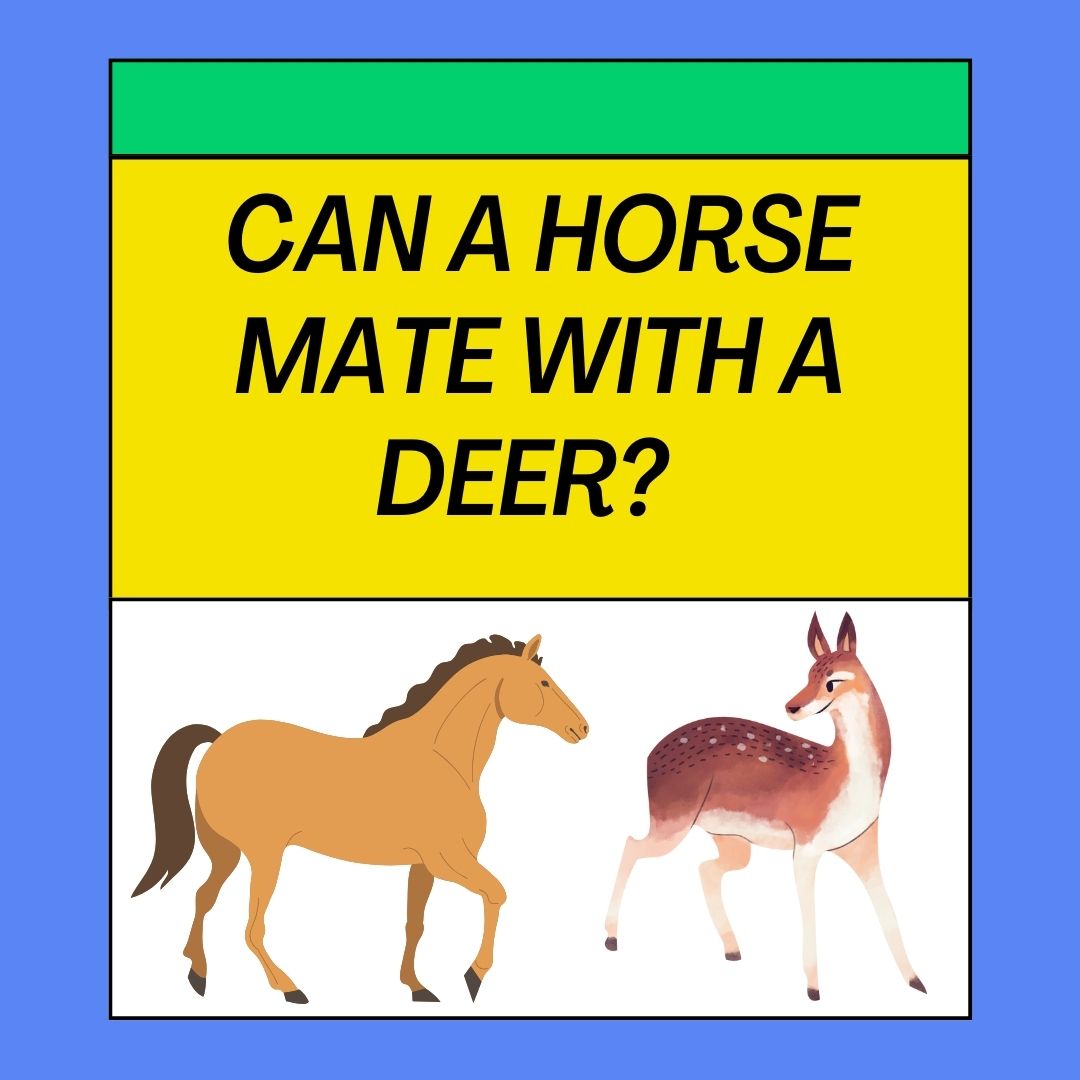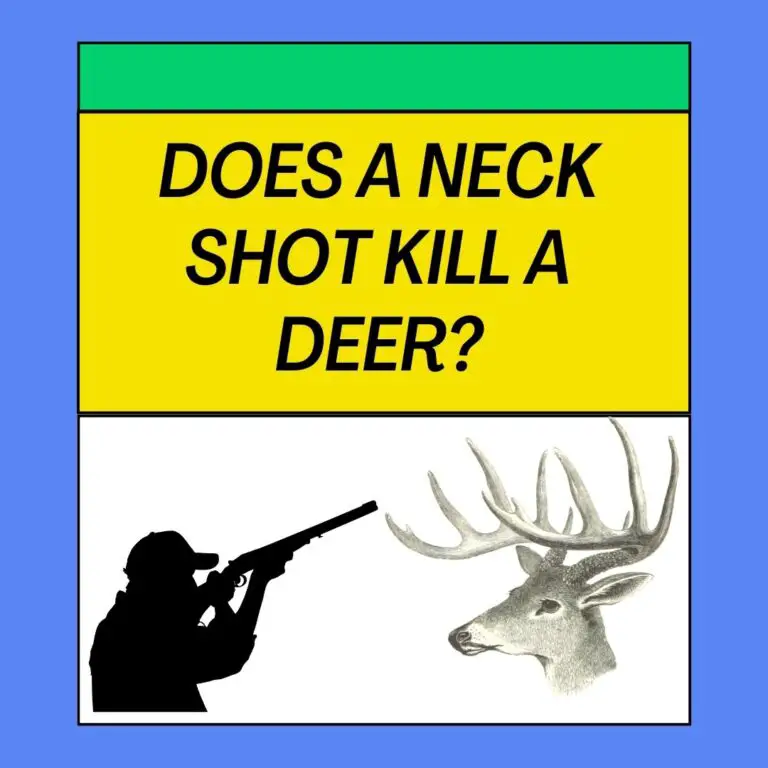
No, horses and deer cannot mate and produce offspring together. Horses and deer belong to entirely different biological families and genera. Horses are equids (Equidae family), while deer belong to the Cervidae family. These two groups of animals have distinct genetic differences, making it impossible for them to interbreed and produce hybrid offspring.
Hybridization generally occurs within closely related species or within the same family or genus. Horses and deer do not share a recent common ancestor, and their reproductive systems are not compatible for mating. While some animals can hybridize with others in the same family or genus, such as different species of big cats or canids, horses and deer are too genetically distinct for successful interbreeding.
What Is a Deer Hybrid?
A deer hybrid is the result of the crossbreeding or mating of two different deer species or subspecies. Hybridization can occur naturally in the wild when two closely related deer species interbreed, or it can be facilitated through controlled breeding in captivity. Deer hybrids typically exhibit a combination of traits from both parent species and may display unique physical characteristics or behaviors.
What Is a Mutant Deer?
A mutant deer is a deer that has undergone a genetic mutation, resulting in an alteration of its physical or genetic traits. Mutations can occur naturally as a result of genetic changes or environmental factors.
Mutant deer may exhibit unusual physical features or behaviors that differ from the typical characteristics of their species. It’s important to note that not all mutations are harmful, and some may be benign or even beneficial to the deer.
Is a Horse-Deer Hybrid Real?
No, a horse-deer hybrid is not real. Horses and deer belong to different biological families and genera, making it biologically impossible for them to interbreed and produce offspring together. Hybridization typically occurs within closely related species or within the same family or genus, but horses and deer are not closely related in terms of genetics and reproductive compatibility.
What Animal Hybrids Are Real?
Real animal hybrids, also known as interspecies hybrids, occur when two different species or subspecies from the same family or genus interbreed and produce offspring. Some examples of real animal hybrids include:
- Liger: A hybrid between a male lion and a female tiger.
- Tigon: A hybrid between a male tiger and a female lion.
- Zorse: A hybrid between a zebra and a horse.
- Cama: A hybrid between a male camel and a female llama.
- Wolphin: A hybrid between a false killer whale and a bottlenose dolphin.
These hybrids are relatively rare and often occur in captivity where individuals of different species are housed together.
10 Farm Animal Hybrids You Didn’t Know Existed
- Beefalo: A hybrid between domestic cattle and American bison, known for its meat quality.
- Mule: A hybrid between a male donkey and a female horse, commonly used as a working animal.
- Zedonk: A hybrid between a zebra and a donkey, often seen in some zoos.
- Geep: A hybrid between a goat and a sheep, which can occur when the two species are closely related.
- Liger: As mentioned earlier, a hybrid between a lion and a tiger, although it’s not a farm animal.
- Hinny: The reciprocal hybrid of a mule, with a male horse and a female donkey.
- Yakow: A hybrid between a domestic yak and a domestic cow, primarily used for milk production.
- Cattalo: A hybrid between domestic cattle and American bison, similar to Beefalo.
- Zony: A hybrid between a zebra and a pony, which can result from closely related species.
- Mulard: A hybrid between a domestic duck and a domestic mallard, often bred for foie gras production.
These farm animal hybrids have been created for specific purposes such as meat production, labor, or unique characteristics.
(FAQs) on the topic of animal hybrids:
1. Are hybrid animals sterile?
- Many hybrid animals are sterile, particularly those resulting from the crossbreeding of species with differing numbers of chromosomes. However, some hybrids, such as mules and ligers, are known to be sterile, while others may be fertile.
2. Can hybrid animals reproduce with each other or with their parent species?
- Hybrid animals generally have reduced fertility and may have difficulty reproducing with other hybrids or their parent species. In some cases, they may be capable of reproducing with individuals from one of the parent species, but the offspring may not always be hybrids.
3. Are hybrid animals found in the wild?
- While most hybrid animals occur in captivity due to controlled breeding, some hybridization can occur naturally in the wild when closely related species overlap in their habitats. However, natural hybrids are generally less common than those produced through human intervention.
4. What are the ethical considerations of creating hybrid animals?
- The creation of hybrid animals can raise ethical questions, particularly regarding the welfare and conservation of species. Breeding hybrids for specific traits or purposes may impact the genetic diversity and survival of the parent species. Ethical considerations vary depending on the context and conservation goals.
5. Can hybrid animals be bred intentionally for conservation purposes?
- In some cases, hybridization may be considered as a conservation strategy to preserve genetic diversity or adapt to changing environments. However, this approach is highly context-dependent and requires careful consideration of the goals and consequences.
6. Are hybrid animals considered a separate species?
- Hybrid animals are typically not considered a separate species. They are often classified as hybrids or crossbreeds and may display a combination of traits from their parent species. The classification can vary depending on scientific criteria and definitions.
7. Are there any legal regulations regarding the breeding or ownership of hybrid animals?
- Legal regulations regarding the breeding and ownership of hybrid animals vary by location and species. Some regions may have restrictions or regulations in place to control the breeding and ownership of certain hybrids, particularly if they pose risks to ecosystems or public safety.
8. Can hybrid animals exhibit unique characteristics or behaviors compared to their parent species?
- Yes, hybrid animals can display a range of unique characteristics or behaviors that result from the combination of traits inherited from their parent species. These traits can vary widely depending on the specific hybridization.
Please note that the answers to these FAQs may vary depending on the specific hybrid animal in question, as hybridization outcomes can differ significantly among different species and individuals.






